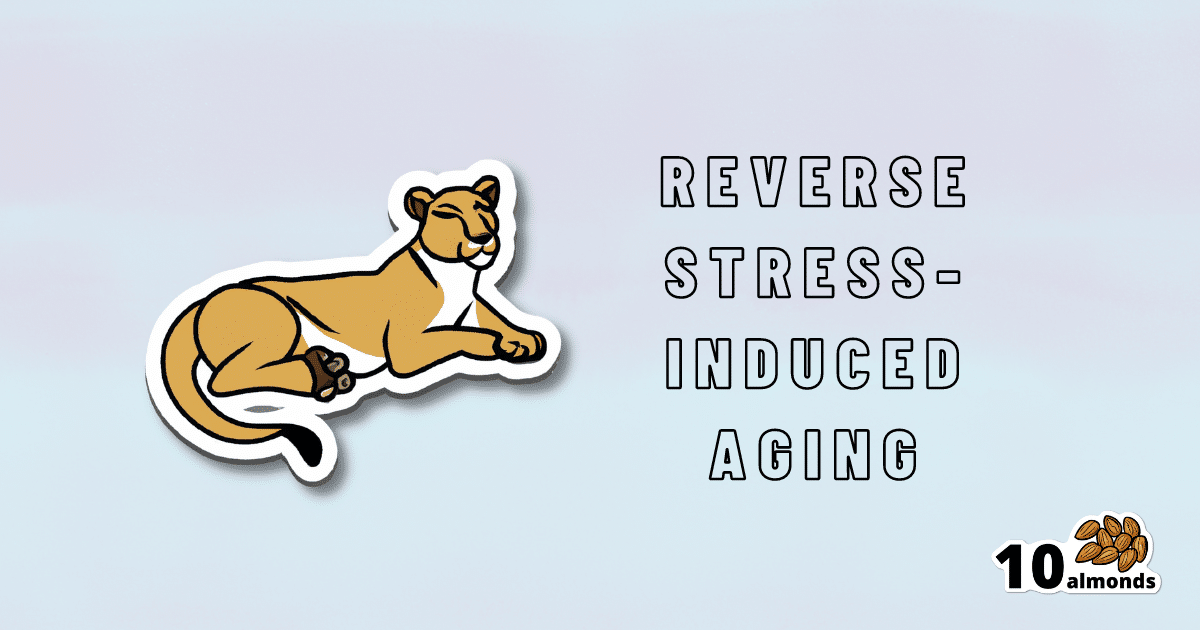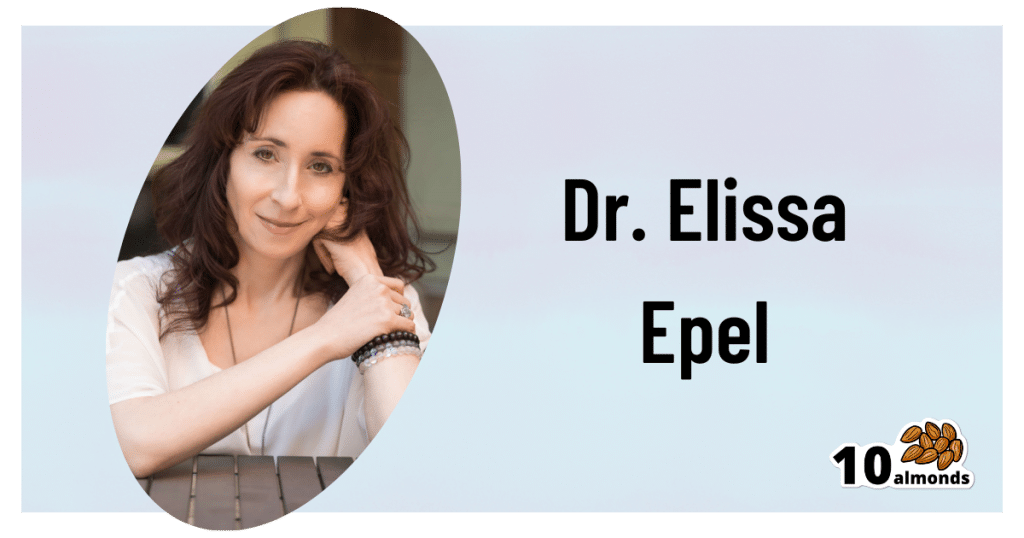The Stress Prescription (Against Aging!)
Dr. Elissa Epel, an expert in stress and aging, reveals that high levels of stress can accelerate aging by shortening telomeres. She offers advice on managing stress through acceptance, eustress, resilience, nature connection, deep breathing, and gratitude.

The Stress Prescription (Against Aging!)

This is Dr. Elissa Epel, whose work has for the past 20 years specialized in the effect of stress on aging. She’s led groundbreaking research on cortisol, telomeres, and telomerase, all in the context of aging, especially in women, as well as the relationship between stress and weight gain. She was elected member of the National Academy of Medicine for her work on stress pathways, and has been recognized as a key “Influencer in Aging” by the Alliance for Aging Research.
Indeed, she’s also been named in the top 0.1% of researchers globally, in terms of publication impact.
What’s that about stress and aging?
In her words,
❝Women with the highest levels of perceived stress have telomeres shorter on average by the equivalent of at least one decade of additional aging compared to low stress women❞
Source: Accelerated telomere shortening in response to life stress
We say “in her words”, as she is the top-listed author on this paper—an honour reserved for the lead researcher of any given study/paper.
However, we’d be remiss not to note that the second-listed author is Nobel Prize Laureate Dr. Elizabeth Blackburn. What a team! Maybe we’ll do a spotlight feature on Dr. Blackburn’s work one of these days, but for now, back to Dr. Epel…
What does she want us to do about it?
She has the following advice for us:
Let go of what we can’t control
This one is simple enough, and can be as simple as learning how to set anxiety aside, and taking up the practice of radical acceptance of what we cannot control.
Be challenged, not afraid
This is about eustress, and being the lion, not the gazelle. Dr. Epel uses the example of how when lions are hunting gazelles, both are stressed, but both are feeling the physiological effects of that stress in terms of the augmentation to their immediate abilities, but only one of them is suffering by it.
We’ll let her explain how to leverage this:
TED ideas | Here’s how you can handle stress like a lion, not a gazelle | Dr. Elissa Epel
Build resilience through controlled discomfort
Don’t worry, you don’t have to get chased by lions. A cold shower will do it! This is about making use of hormesis, the body’s ability to build resilience to stressors by small doses of controlled cortisol release—as for example when one undergoes thermal shock, which sounds drastic, but for most people, a cold shower (or even an ice bath) is safe enough.
You can read more about this here:
A Cold Shower A Day Keeps The Doctor Away
Connect with nature
You don’t have to hug a tree, but you do have get to a natural (or at least, natural-seeming) environment once in a while. Simply put, we did not evolve to be in the urban or even suburban settings where most of us spend most of our time. Getting to be around greenery with at least some kind of regularity is hugely beneficial. It doesn’t have to be a national park; a nice garden or local park can suffice, and potted plants at home are better than nothing. Even spending time in virtual reality “nature” is an option:
(you can see an example there, of the kind of scenery this study used)
Breathe deeply, and rest deeply
Mindful breathing, and good quality sleep, are very strongly evidence-based approaches to reduce stress, for example:
Practice gratitude to build optimism
Optimism has a huge positive impact on health outcomes, even when other factors (including socioeconomic factors, pre-existing conditions, and general reasons for one person to be more optimistic than another) are controlled for.
Read: Optimism and Cause-Specific Mortality: A Prospective Cohort Study
There are various ways to increase optimism, and practising gratitude is one of them—but that doesn’t necessarily mean abandoning realism, either:
How To Practise (Non-Toxic) Positivity
There are other ways too, though, and Dr. Epel discusses some with her friend and colleague, Dr. Elizabeth Blackburn, here:
Want to learn more from Dr. Epel?
We reviewed one of her books, The Telomere Effect, previously. It’s about what we can do to lengthen our telomeres (a key factor in health aging; effectively, being biologically younger). You also might enjoy her newer book, The Stress Prescription, as well as her blog.
Enjoy!
Share This Post
Learn To Grow
Sign up for weekly gardening tips, product reviews and discounts.




